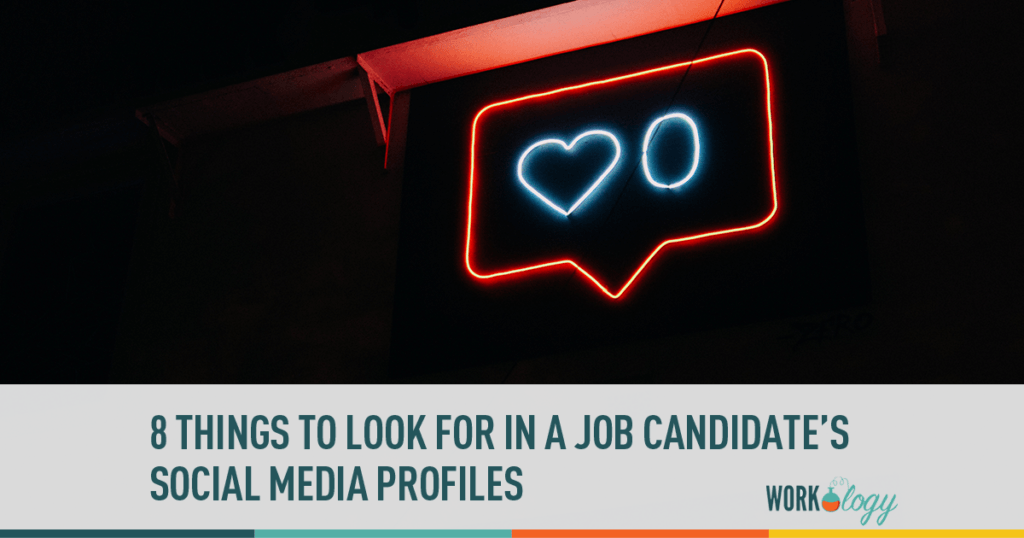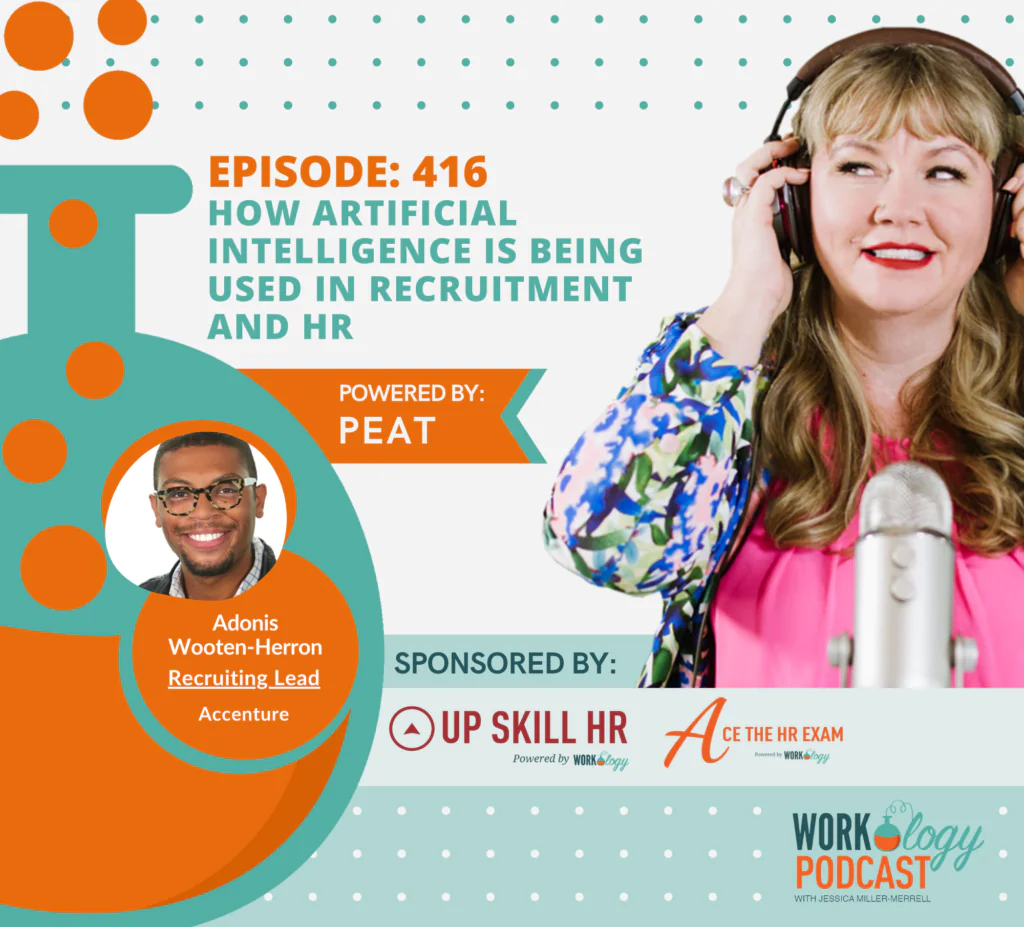Social media profiles can tell you a lot about a job candidate. More and more recruiters, now 86 percent, view a job candidate’s social media profiles during the decision process.
It’s important to use these resources not just to look for red flags, but for items showing a candidate’s likelihood to succeed in your organization. Three in 10 recruiters have found something positive on social media, causing them to hire a candidate.
Eight things to look for in a job candidate’s social media profiles:
Personality
Reading through a social media profile gives recruiters a sense of a job candidate’s personality. This can be a good way to decide if they will mesh well in your organization’s culture. For example, if the candidate has lots of photos with pets and your company is filled with animal lovers, they might be more likely to fit in with your team. Conversely, you might spot something suggesting the candidate won’t fit in.
Professional image
How job candidates represent themselves on their social media profiles is how the world sees them. It is important to look for candidates with a professional online image. This does not necessarily mean their profile is career-driven. It means the candidate only posts images and words portraying them in a positive light. A job candidate with a professional image is more likely to be dependable.
Professional qualifications
Many job candidates list things on their profiles to illustrate their professional qualifications. For instance, a candidate might be affiliated with a professional organization in your industry. These clues can help recruiters determine if job candidates are dedicated to growth in their industry.
Well-rounded
A job candidate whose social media profile shows a wide range of interests might be better for a position than someone who doesn’t. Does the candidate show dedication to volunteering in the community? An organization with an emphasis on giving-back might like to learn more about that person.
Communication skills
In every industry, it is important to be a good communicator. Social media profiles provide great examples of how job candidates communicate on a daily basis. If their message on social media is strong, you can bet they’ll be able to communicate effectively in your organization.
References
Especially on career-based outlets like LinkedIn, social media can be a great way for recruiters to find references for job candidates. Do they have recommendations from past employers? Are they connected to someone you know? These are good clues to the quality of the candidate.
Controversial posts
While not necessarily good or bad, it’s a good idea to take notice if the job candidate has posts about religion, politics, or other controversial topics. It might not matter at all, but if a candidate has a strong opinion, it might influence the way they fit in with the rest of the organization.
Red flags
Even with all of the helpful positives, it’s always important to look for the red flags in a job candidate’s profile. Look for references to drugs or alcohol, inappropriate photos, profanity, discriminatory comments, and lies about qualifications. Spelling and grammar errors might also be a strike on the candidate’s record. Finally, if a candidate bad-mouthed a previous employer, you may want to stay away.
Whether good or bad, a job candidate’s social media profiles can tell you a lot about their qualifications for your organization.
What’s important to you?
What else do you think is important in a job candidate’s social media profiles?










12 Comments
Thank u for this very USEFUL & vital info. Does make me a lot
More aware of my uploads . I have heard that companies
Look onto facebook, and often wondered what do they look for,
But now I’m well aware, so thanks .
I really question the predictive validity of using social media information within a selection process. As studies have shown, your work life is more likely to impact on your individual life than the other way around. I can appreciate however that having all that information there in social media can be attractive, however through using it as part of a selection process are we using this information ethically?
As a recruiter I don’t like to look at social media profiles in the decision making process, but I was recently talking with a friend that her employer does Google candidates before they make an offer. Apparently they had a candidate several years ago that was in the interview process awaiting an offer and someone found his blog that was bashing the industry that the company was in… So I can understand looking for things like that. I wouldn’t put too much weight on spelling errors and such on Facebook or Twitter just because people tend to use abbreviations and lingo there. Things like Facebook and Twitter aren’t necessarily where candidates are showcasing their work abilities, it’s more so a place to connect with friends and family. Now if they had a ton of spelling errors on their LinkedIn profile that I might take into consideration.
I find that number 86% to be shockingly high.
I don’t look at social media on candidates because most of that information falls outside the boundaries concerning interview information.
So I am considering Candidate A and I take a look at their sites and the individual makes statements about gay marriage or religion or gun control or politics or they talk about their 6 kids. If I decline Candidate A because Candidate B was the best candidate, all candidate A has to say is you made your decision based on the info you gathered from social media. I don’t see how you can win.
I think you should look at the number and quality of c”ontacts. As the saying goes, “Show me who you hang around with and I’ll show you w
ho you are.”
Ridiculous. I’ve been in the Human Resources business for over twenty years. I can tell in five minutes whether an applicant is the right match or not. The applicant needs to match not only the business, the team, the direct reports, but also and for the protection of the applicant and the business. While based on generalities if I made a decision based on the applicant “alter ego” and that is what I think these social networking pages are, “alter egos” then I would probably never hire anyone. You don’t even touch the legal ramification of either making or withdrawing an offer based on the contents of social page.
Thank you Heather for your thoughts. What type of guidelines would you provide for someone interested in creating a personal website or who is interested in blogging. If a candidate regularly blogs about a subject (non-industry related) does that help or hinder the applicant’s position?
It’s funny how all the press around this acts as though we’re all out looking for reasons to ding people, but if you take a step earlier in the process (sourcing, for example), we use these things as ways to engage them. So the one I’d extract out of this is “ways to start engaging conversations with them”!
It is always good to do some kind of background check on a job candidate. Good article.
obviously like your website however you need to take a look at the spelling
on several of your posts. Many of them are rife with spelling
problems and I find it very troublesome to tell the truth on the other hand I’ll definitely come back again.
Hi there. Thanks for your feedback. While we have an editor for the website things are never perfect. Here are my thoughts on spelling. https://workology.com/social-media/i-kan-spel-gud-a-story-about-blogging-life-living/
JMM
Other homeowners enjoy furniture for the garden that pop out and end up getting attention.
There are many basic elements in landscape backyard design that should be incorporated into your
landscape design. Though there are many companies that can assist you in helping to
maintain the beauty of your property and home,
one should not choose the first company that is found.
Comments are closed.